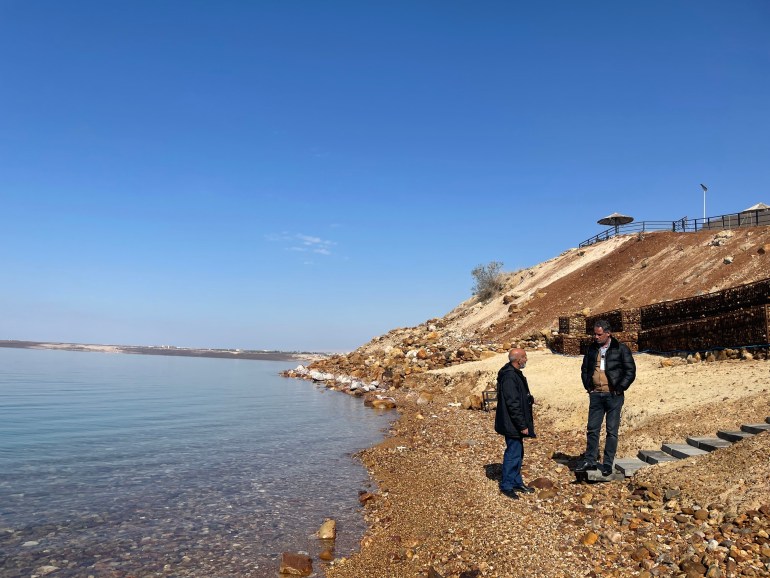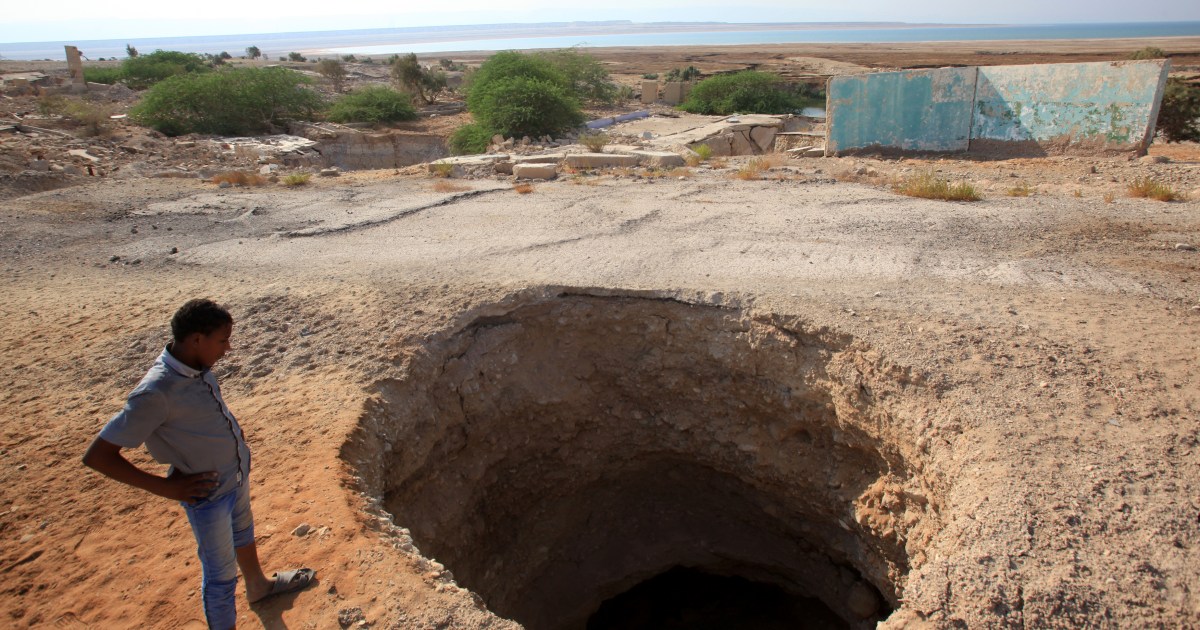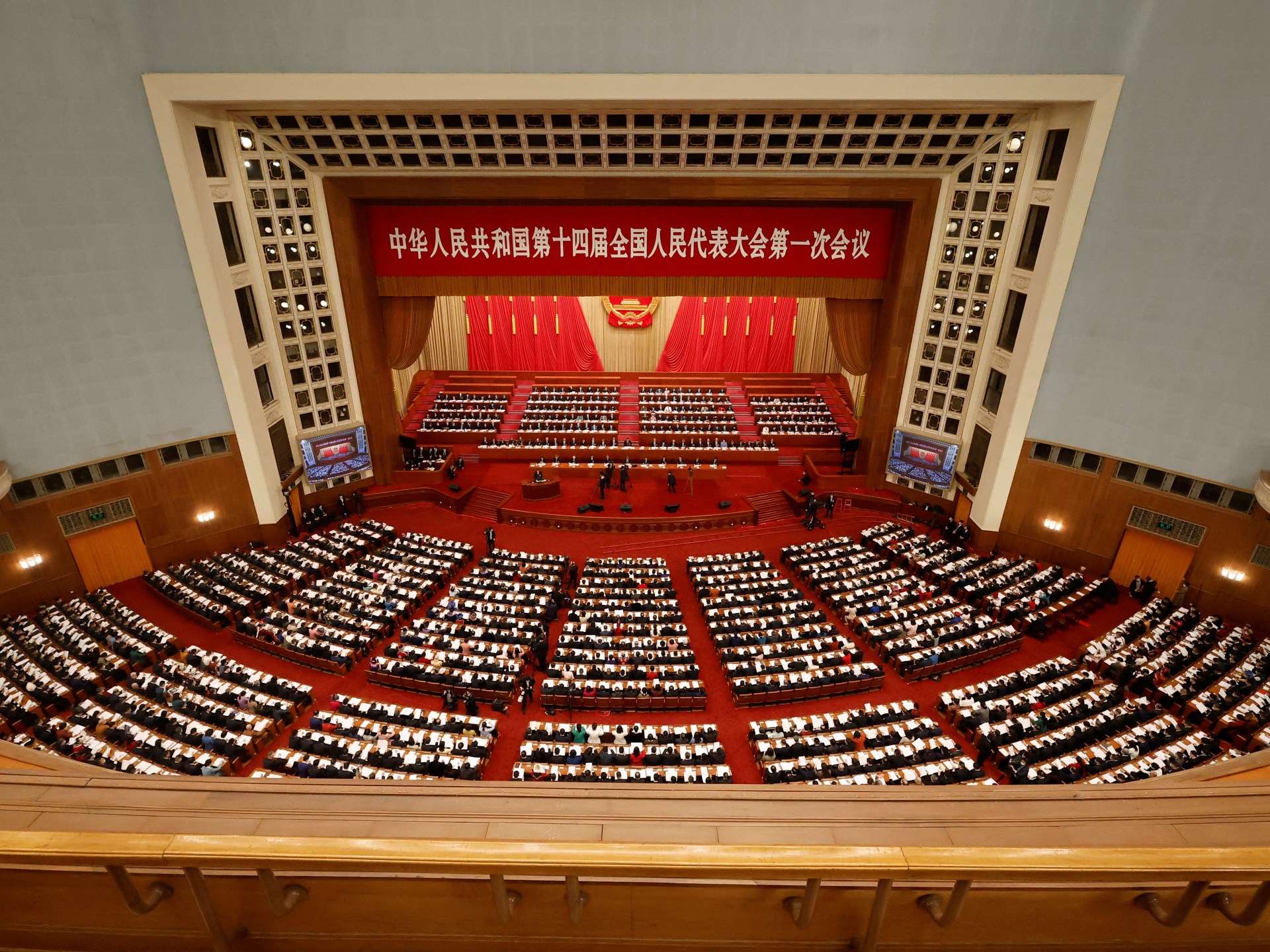Earth Day: Jordan farmers frustrated over shrinking Dead Sea | Climate Crisis News
Ghor Haditha, Jordan – As the world marks Earth Day 2022 on Friday, farmers in southern Jordan are experiencing the devastating consequences of climate change.
Heightening water scarcity and the appearance of sinkholes in the area close to the Dead Sea have increased each year.
As the population grows with the constant flow of refugees from neighbouring countries, so too does the demand for water and agricultural production. The Dead Sea drops about one metre (three feet) each year, causing major problems for the agricultural sector in Jordan.
According to figures from the United Nations, Jordan is the second most water-scarce country in the world. Because of population growth, industrial and agricultural challenges, and climate change, the country is facing serious repercussions as the demand for water surges.
The Dead Sea, a landlocked salt lake, is located between Jordan, the occupied Palestinian territories, and Israel. It has receded about 20 metres (66 feet) over the past two decades, researchers say. The decline in water levels and subsequently groundwater has caused sinkholes to proliferate.
The April heat beams over Ghor Haditha, an area in southern Jordan next to the Dead Sea, about 100km (60 miles) south of the capital, Amman.
At a farm located a few hundred metres from the sea, sinkholes have greatly affected agricultural production, as large portions of soil have disappeared.
Amina al-Huaima, farm manager at an agricultural site in Ghor Haditha, has been working the land for two decades.
“The hours are long and we do not get paid a lot. It is hard work, especially as the risk of the ground disappearing is getting higher,” al-Huaima told Al Jazeera.
‘Our land is destroyed’
Ten workers harvest the last batches of tomatoes before the season ends in May. Samir Muhammad al-Habashna, a farmer in the area, points towards the hills of Ghor Haditha behind the farm.
The area had more people living here before, but now because of climate change, many people have moved away.
“Our field was bigger before and we have fewer employees as the demand has gotten smaller. It is not like before as the earth has literally disappeared beneath our feet,” al-Habashna says.
He walks towards one of the sinkholes, some 30 metres (98 feet) deep. The field is about 200 metres (656 feet) from the Dead Sea’s shore, and sinkholes are scattered all over.
The lower water levels of the Dead Sea have changed the way of life for people here for the worse because these fields and those who work them are dependent on the salt lake.
Al-Habashna, who has worked in the area since the beginning of the 1990s, is frustrated with the lack of help farmers have received.
“Our land is destroyed. We tried to look for solutions but did not find any. No one helped … not even the ministry of environment helped us,” he says.

Diverting water
Professor Nizar Abu Jaber from the German Jordanian University specialises in the geochemistry of groundwater in Jordan. Jaber said he does not believe climate change is the reason for the drop of the Dead Sea, and sees the diversion of water from the Jordan River as the main cause.
“The shrinking of the Dead Sea is basically caused by diverting the headwaters coming in from the Jordan River. It really has little to do with climate change,” Abu Jaber says.
Water flows from southern Lebanon and Syria, streams into Lake Tiberias, and then through the Jordan River and into the Dead Sea. It penetrates the ground in the Dead Sea area, which dissolves the salt into the soil. This causes the land to lose its density and sometimes collapse, causing the sinkholes to appear.
The Dead Sea used to receive about 200 million cubic metres of water per year before Israel started diverting headwaters in the 1960s. Later, Jordan and Syria started diverting water as well, and the amount that reaches the Dead Sea today is less than 100 million cubic metres, says Abu Jaber.
Abu Jaber sees the appearance of sinkholes as a problem for the people living close to the Dead Sea.
“It is a menace for the people who are working there. It is dangerous because the sinkholes appear suddenly and without any warning,” he says.
The Jordan Valley Authority manages and protects water resources in the region. Engineer Khouloud Bashtawi from the authority says there is more than one reason for the drop in Dead Sea levels.
“The reduction of annual rainfall and increased flow of water into the main wadis [ravines] that lead to the Dead Sea, the increase of flow in the Jordan River, and the higher temperatures – which increase the evaporation of water – all lead to the drop of the water level,” Bashtawi said.






Pingback: Albino Penis Envy Mushrooms – 4 Oz,
Pingback: Are magic mushrooms legal in Oregon?